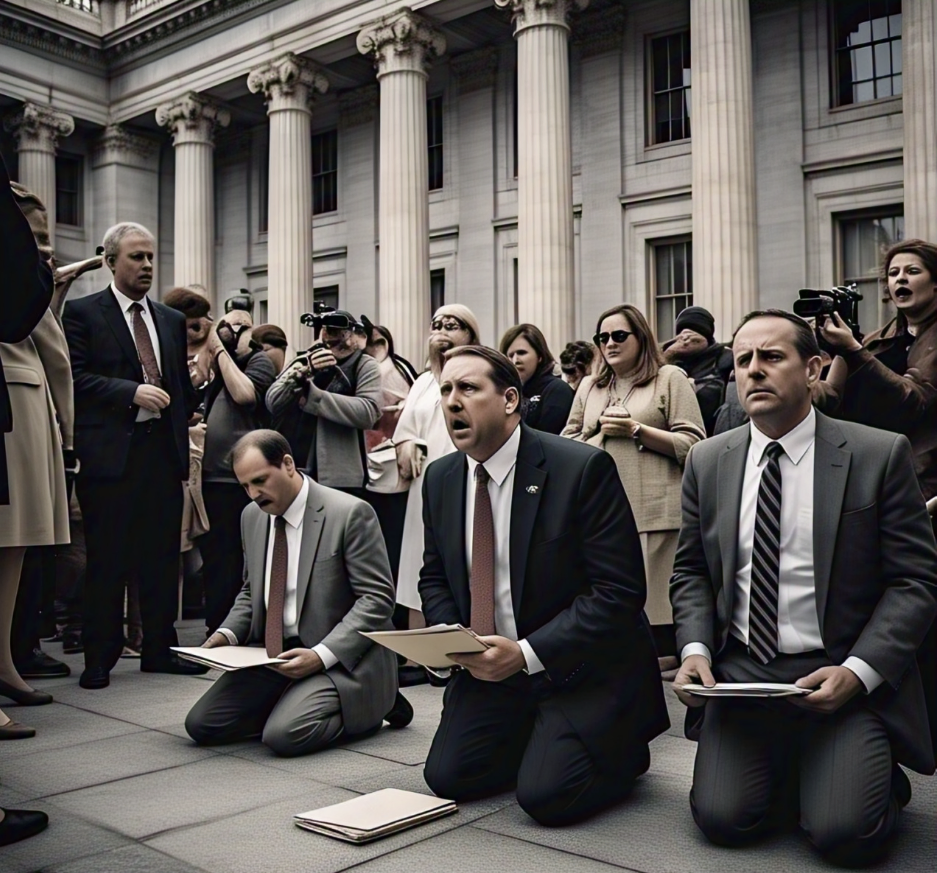
spectator.org
Canada: A Socialist Paradise Lost
Canada should be one of the world’s best countries to live in, and for many people it once was. Possessing vast natural resources and reserves of energy (exceeding those of the U.S. on a per capita basis), endless natural space (as the world’s second-largest country), adequate infrastructure, no enemies, a parliamentary democracy, and an educated population, it should face no problems beyond the winters.
A third issue is that Canada is now nearly unaffordable for most of its citizens. The property prices in Vancouver and Toronto are among the world’s highest, so that an average house costs $1.7 and $1.4 million dollars respectively.
But a decade under the former Liberal leader Justin Trudeau has reduced a first-world country to the level of a failing, although not yet a failed, state. The strains of O Canada are giving way to cries of Woe Canada, while the recent book by the journalist Tristin Hopper (Don’t be Canada: How One Country Did Everything Wrong All at Once) documents the national malaise with many examples of stagnation, incompetence, and folly. Epithets such as “a woke dystopia” and “the sick man of North America” are now heard. Where did it all go so wrong?
Canada’s most urgent self-inflicted problem is the stagnant economy, which has been ailing since 2015. Canada has the largest increases in government spending and the second-slowest growth in GDP per capita in the G7, averaging a mere 0.6 percent per annum for two decades, or half the U.S. rate. Chronic under-investment has produced low productivity, and even government pension plans direct much of their investment towards more profitable U.S. companies in a slow death spiral as manufacturing capacity is hollowed out. Business is mired in red tape, and the jobless rate is at 7 percent.
Household debt relative to GDP is the highest within the G7. Gross national debt has grown faster than in all advanced countries for the last decade, now increasing at $109 million per day and amounting to over $40,000 per taxpayer for federal debt, plus a similar figure provincially.
The pale pink Liberal government under Mark Carney plans to run huge deficits for the next four years ($57 billion p.a.), much higher than under Trudeau, whose deficit for the last year before Covid was then the largest in seven years at a mere $25 billion.
The Canadian dollar, once at parity with the U.S., today is worth about 70 cents. The economist Dave Chapple describes Canada as the “worst developed country in the world,” with:
– The housing costs of New York
– The wages of Mississippi (but the prices of California)
– The same-sized economy as Alabama
– Taxes higher than in any of the 50 United States.
A second problem is bloated government, and an unbound sense of entitlement among the nomenklatura. Public servants comprise nearly a quarter of the population, each costing $172,000 annually on average. Canada is over-regulated, but under-governed. The ten provincial governments have mixed records, but the federal government falls between lame and broken, as shown by the analysis of the political commentator Andrew Coyne in his book The Crisis in Canadian Democracy. Canada flounders under weak and semi-functional central government, so that, for example, after 160 years it is only now attempting to lift interprovincial tariff barriers to trade.
It also struggles with gerrymandered ridings, highly inequitable representation, cronyism, and a sometimes corrupt selection process for candidates and party leaders. These failings are mainly due to the inflated role of the Prime Minister, who functions not only as the head of government but also as de facto head of state, with powers exceeding those of the U.S. presidency. The PM controls almost everything as a personal fiefdom, including the legal and financial systems, and knows that the MPs of his party will never contradict him, so that he rules over an obedient legislature as a “democratic” dictator.
Thus the Liberals, the perpetual ruling party, in 2015 selected as their leader the photogenic Trudeau, a 43 year-old former drama coach lacking experience or wisdom, and MPs acquiesced as he turned Canada into the world’s most woke country, with disastrous policies for the economy, energy, the law, indigenous issues, and mass immigration. (The public was less impressed: abuse was heaped on him by angry crowds by the end of his reign). National institutions such as the postal service, the public broadcasting network, passenger trains, and Medicare, are all dead or moribund, but devour billions in ever-rising public subsidies. The “Conservative” party offers alternatives which roughly correspond to the policies of the UK Labour party.
A third issue is that Canada is now nearly unaffordable for most of its citizens. The property prices in Vancouver and Toronto are among the world’s highest, so that an average house costs $1.7 and $1.4 million dollars respectively, while wages have fallen well behind, and family incomes average $74,000. (Three quarters of Canadians live in large cities, where these problems are the worst). Food and transport are also a problem for most people, as are very high taxes. About a tenth of the population has to rely on food banks.
Young people, facing straightened futures in rental accommodations, are now more conservative in polls than their elders: socialism is not working for them. Seniors suffer because the Medicare system is slowly dying, so that despite paying taxes for Medicare they are often forced to use semi-licit private clinics, where they receive good care at a premium price.
The fourth failure is seen in the snarled, inept justice system, which has devolved into a system based on “inverse culpability” (IC). Minor misdeeds, like traffic violations, are punished briskly and there are fines for not turning off the motor promptly or for failing to brush all the snow from one’s car. But repeat drunk-driving offenders continue to reoffend regardless. Likewise, speech that is deemed hateful can lead to years of imprisonment, but actual assaults or homicides often result in no more than a slap on the wrist. Corruption, often semi-legal, is pervasive, and bail is almost automatic, even for violent criminals. Judges must apply the “Gladue principle” that mandates lighter penalties for indigenous miscreants due to their victimhood.
The extremes of IC are exemplified by the way that an angler in Nova Scotia risks a fine of $100,000 for failing to kill a small invasive fish, or $500,000 for a second offence. Amy Hamm, a gender-skeptical nurse, was recently fined $93,000 for putting up a billboard saying “I ♥ J. K. Rowling.” Compare this with the six-year prison sentence given to Inderjit Singh Reyat in connection with the bombing of Air India flight 182, which killed 329 people in 1985.
A fifth problem is a recent flood of immigration. Canada has admitted half a million newcomers annually (half from Asia), one of the world’s highest rates, thus contributing to severe housing shortages; a quarter of the population is now foreign born. Many immigrants become assimilated and succeed in areas like business, academe, and the professions. But not all cultures are equal to the challenge: dozens of lethal ethnic gangs have proliferated in cities like Vancouver and Toronto, and murderous conflicts between Sikhs and Hindus simmer. Over half of all Canadians believe that the inflow of migrants is too rapid.
There are other national failures: the perennial English/French/Aboriginal lack of national unity, the substandard conditions of life on reserves, the lawless homeless encampments in big cities, an epidemic of opioid deaths, and rising rates of crime and drug abuse (car theft is rampant). A common factor, the sentimental national characteristic of wishing to see everyone (except white males) in the best possible light, means that every failing is attributed to victimhood, producing a ludicrous woke culture.
There is embarrassment, not pride, over Canada’s past accomplishments, so that statues of her national founders like Sir John A. McDonald are hidden away behind plywood sheets on grounds of political incorrectness. The mighty projects of the past, like the “impossible” transcontinental railroad, the Trans-Canada highway, and the St. Lawrence Seaway, which brings ocean-going ships into the heart of the continent, are almost unthinkable in today’s climate of national self-doubt, self-hatred, attacks on “white privilege,” and performative displays of virtue.
Although some national projects are now mooted by Carney, recent billion-dollar publicly funded fiascos such as failed battery plants raise doubts, as do the foolish choices made by bureaucrats in handing out public money (for example, $9 million for a company that produces edible crickets, or $20 million that will “focus on improving gender-responsive and climate-resilient agricultural practices” in Tanzania).
Canada’s problems resemble those of countries such as Australia or Germany (although worse), and appear insoluble without major upheaval. Conrad Black has noted that most countries go through periods of regression, predicting that Canada will eventually shake off its politically correct obsessions and recover a sense of purpose. If this reset occurs, it would be a nice irony that Donald Trump, although reviled here for his attacks on Canada, DEI, anti-patriotism, transgenderism, and public disorder, may through them have spurred a national reawakening for Canada.
READ MORE:
Steelmanning Tariffs
The UN Wants a New State Bent on the West’s Destruction
The Empire Strikes Out on Canada
Leo Standing is a retired experimental psychologist and academic.










